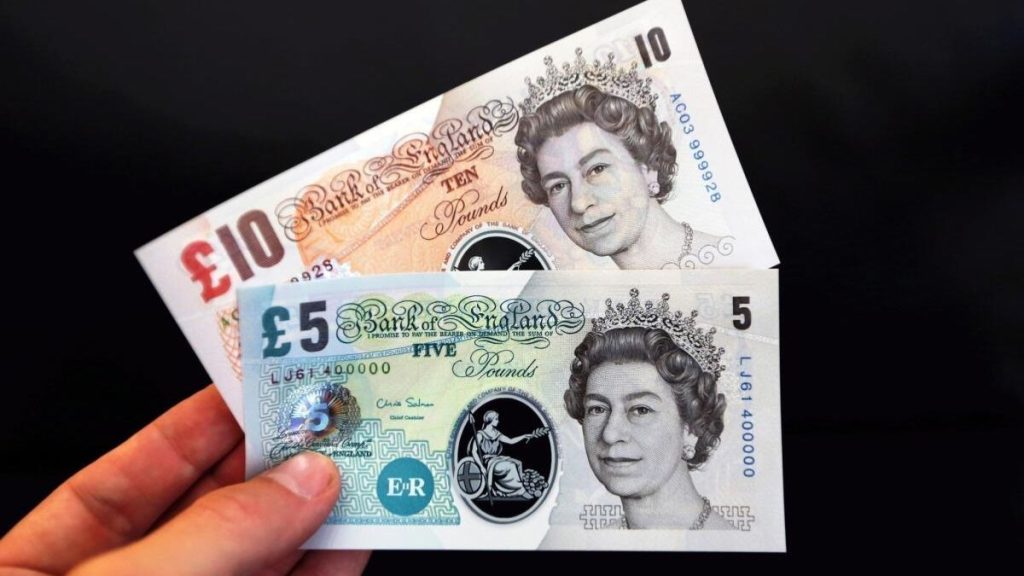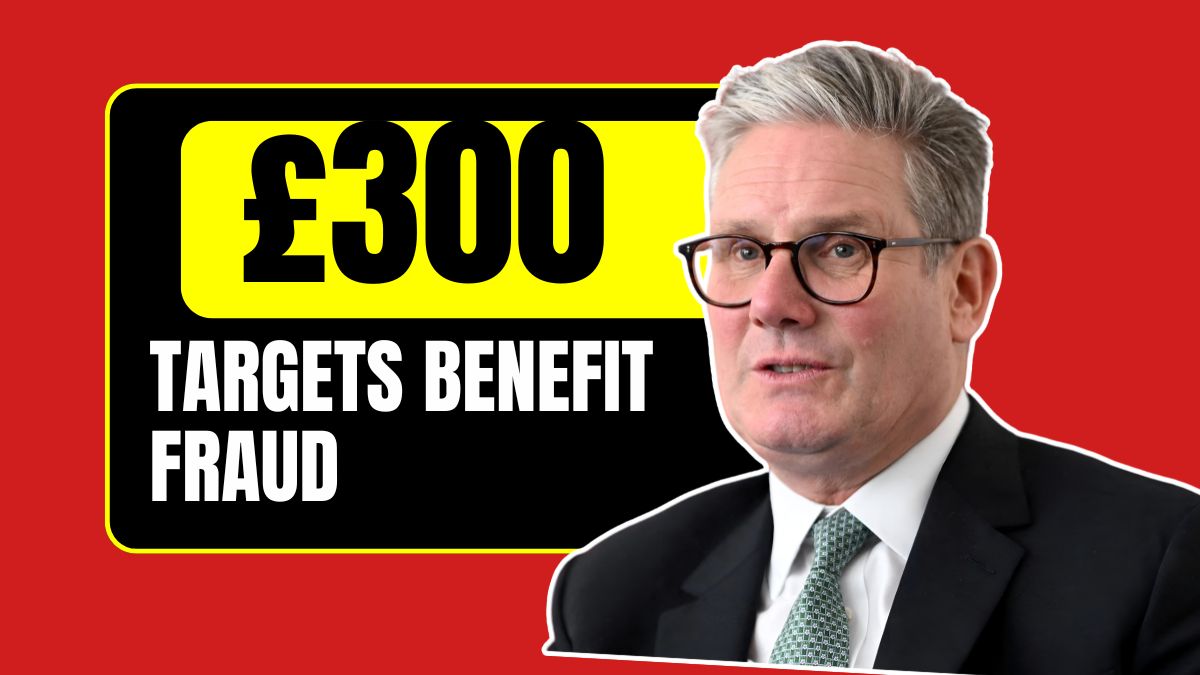The UK government is making a bold move to crack down on benefit fraud, and it’s going to affect thousands of claimants. In a significant policy shift, the Department for Work and Pensions (DWP) will soon have new legal powers to access benefit claimants’ bank accounts, recover money directly, and issue civil penalties of up to £300.
This isn’t just a small policy update — it’s part of a wider government strategy to reduce fraud and error in the welfare system, which has cost the country hundreds of millions of pounds each year. If you receive any kind of DWP benefit or tax credit, here’s everything you need to know about what’s changing and how it could affect you.
Why Is the Government Doing This?
According to official reports, fraud and error across the welfare system have led to enormous financial losses. For example, in the 2021–2022 financial year, over £823 million was identified as being lost to fraud or mistakes — but only £190 million of that was successfully recovered.
That’s just 23% of what was owed, and it paints a clear picture: the current system for recovering money isn’t working effectively enough.
The Cabinet Under Secretary, Georgia Gould, explained the government’s position clearly in a statement to MPs. She said that other departments — including the NHS Counter Fraud Authority — are facing similar struggles, recovering only 12% of their own fraud-related losses.
In response to this growing problem, the government is bringing in tighter rules and giving the DWP more authority to recover debt from those who owe money but simply haven’t paid it back — even though they could.
What Are These New Powers?

Under the new rules being introduced, the DWP will now be able to do the following:
- Access claimants’ bank account information, but only under specific conditions
- Recover debts directly from bank accounts using something called deduction orders
- Impose civil penalties of up to £300, in cases where someone refuses to repay a debt that they can afford to pay
The £300 fine is not just for fraud — it’s a civil penalty designed to hold accountable those who deliberately avoid repayment, even after multiple warnings or offers to set up a repayment plan.
But the government says this won’t happen overnight or without warning. These powers are meant to be a last resort, used only after voluntary repayment efforts have failed.
Will Everyone Be Affected?
No — and that’s important to understand. The DWP has emphasized that these new measures are not aimed at people who are genuinely struggling financially.
Instead, the target is a very specific group: those who have the means to repay money they owe to the DWP — usually because they received benefits they shouldn’t have — but have refused to cooperate.
In simple terms, if you’re on a low income and can’t afford to repay a debt, you won’t suddenly see your bank account drained. But if you can afford it and ignore repeated DWP notices, the government will now have the legal backing to act.
How Will the DWP Use These Powers?
If someone owes money to the DWP and doesn’t respond to letters or repayment requests, the department can apply a deduction order to take the money directly from their bank account.
This is similar to how a court order works in other debt situations. The deduction can only be made if:
- The debt is linked to a confirmed case of fraud or overpayment
- The person refused to engage in any repayment discussions
- They have enough money in the bank to cover the debt or part of it
Along with this, the DWP may impose a £300 penalty as a fine. But again, officials have confirmed that multiple safeguards are in place to prevent abuse of this power.
What About Privacy and Legal Safeguards?
Not surprisingly, there have been some concerns raised by civil liberty groups and privacy advocates. Giving a government department access to people’s bank accounts sounds invasive — and it is, to a degree.
But the DWP has said it’s taken careful steps to ensure the system is fair, legal, and properly overseen. Here’s what you can expect:
- Claimants will be notified before any action is taken
- They’ll be given the opportunity to appeal, request a review, or make representations
- Trained and authorized officers will follow strict legal guidelines
- Oversight will come from independent regulators, ensuring transparency
If you believe you’ve been wrongly targeted, you’ll have access to tribunals and formal complaint routes. The aim, according to Georgia Gould, is to balance enforcement with fairness, ensuring the system supports those who need it — but doesn’t ignore those who abuse it.
Going Beyond Bank Accounts

And it doesn’t stop at bank balances. In cases where someone hides their money in property, assets, or foreign accounts, the DWP will have the power to go to court and pursue those funds too.
So if a person is not being honest — for example, claiming Universal Credit while secretly earning rental income or hiding funds in overseas investments — the new rules allow the DWP to track down those assets and recover what’s owed.
As Gould stated, “This legislation allows us to recover fraud debt wherever it sits — whether in UK banks, in properties, or overseas.”
Why This Matters to the Public
This is part of a larger crackdown that was encouraged by several high-level government bodies, including:
- The Public Accounts Committee
- The Home Affairs Committee
- The National Audit Office
All of these have previously criticized the DWP for failing to act swiftly and effectively against benefit fraud. With these new tools in hand, the government hopes to restore public trust, protect taxpayer money, and ensure that benefits go to those who actually need them.
Final Thoughts:
If you’re receiving benefits and worried about these changes, don’t panic. Here’s what you can do:
- Check your DWP correspondence regularly — don’t ignore letters
- If you’ve been told you owe money, contact the DWP to set up a repayment plan
- If you believe the debt is incorrect, appeal through the appropriate channels
- Keep your bank account details up to date with the DWP
Most importantly, stay informed. These changes are not designed to punish honest people who are facing genuine financial struggles. But if someone is intentionally avoiding repayments, the consequences just got a lot more serious.
In short, the message is clear: benefit fraud will no longer be overlooked, and the DWP now has powerful tools to recover what’s owed — whether it’s in a bank account, in real estate, or halfway around the world.
FAQs
1. What is benefit fraud?
Benefit fraud occurs when someone deliberately provides false information or withholds details to receive welfare payments they are not entitled to.
2. What new action is the government taking against benefit fraud?
The UK government is intensifying its crackdown by introducing £300 fines and authorising bank deductions without consent for fraudulent claimants.
3. Can the government deduct money from my bank account without permission?
Yes, under the new rules, if you are found guilty of benefit fraud, the government can deduct overpaid benefits or fines directly from your bank account without requiring your consent.
4. Who could be affected by these new changes?
Anyone claiming benefits such as Universal Credit, PIP, ESA, or Housing Benefit could be affected if they provide incorrect or misleading information.
5. What is the £300 fine?
It is a fixed penalty that the Department for Work and Pensions (DWP) may issue if you are found guilty of minor benefit fraud, without the need for criminal prosecution.



